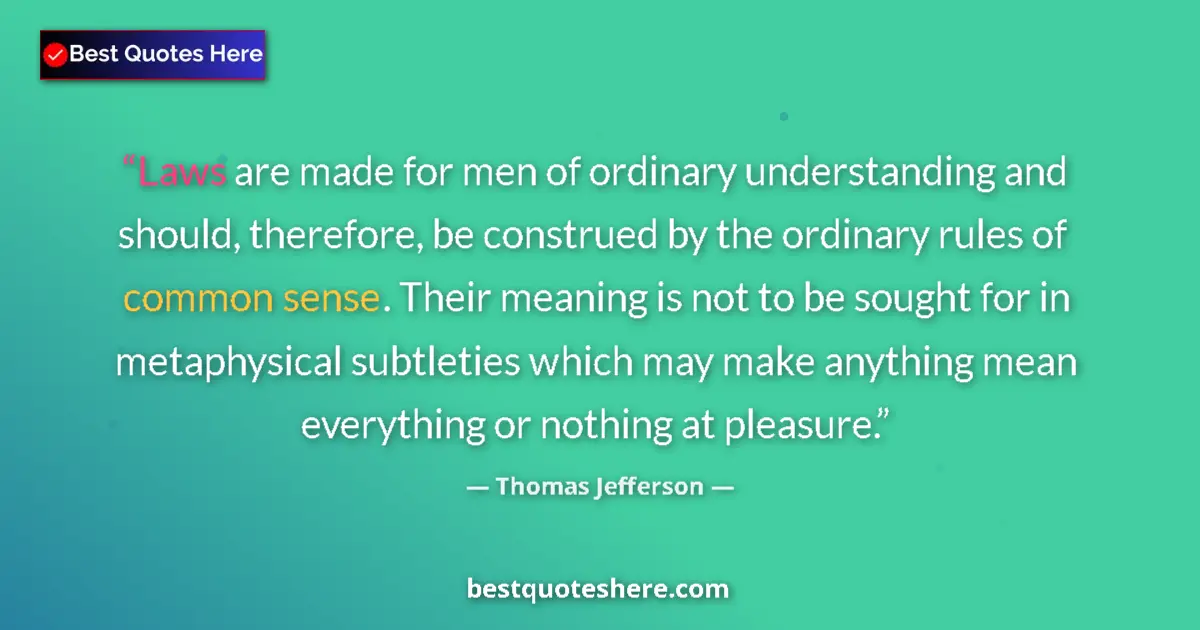"Laws are made for men of ordinary..." - Quote by Thomas Jefferson
Laws are made for men of ordinary understanding and should, therefore, be construed by the ordinary rules of common sense. Their meaning is not to be sought for in metaphysical subtleties which may make anything mean everything or nothing at pleasure.

More by Thomas Jefferson
“While old men feel sensibly enough their own advance in years, they do not sufficiently recollect it in those whom they have seenyoung.”
“The principles on which we engaged, of which the charter of our independence is the record, were sanctioned by the laws of our being, and we but obeyed them in pursuing undeviatingly the course they called for. It issued finally in that inestimable state of freedom which alone can ensure to man the enjoyment of his equal rights.”
“Experience hath shewn, that even under the best forms of government those entrusted with power have, in time, and by slow operations, perverted it into tyranny.”
More on Law
“And finally remember that nothing harms him who is really a citizen, which does not harm the state; nor yet does anything harm the state which does not harm law [order]; and of these things which are called misfortunes not one harms law. What then does not harm law does not harm either state or citizen.”
“If by the liberty of the press were understood merely the liberty of discussing the propriety of public measures and political opinions, let us have as much of it as you please: But if it means the liberty of affronting, calumniating and defaming one another, I, for my part, own myself willing to part with my share of it, whenever our legislators shall please so to alter the law and shall chearfully consent to exchange my liberty of abusing others for the privilege of not being abused myself.”
“"Lawyers Are": Those whose interests and abilities lie in perverting, confounding and eluding the law.”
More on Interpretation
“It [the Constitution] didn't break free from the essential constraints that were placed by the founding fathers in the Constitution, at least as it's been interpreted, and the Warren court interpreted it in the same way that generally the Constitution is a charter of negative liberties. It says what the states can't do to you, it says what the federal government can't do to you, but it doesn't say what the federal government or the state government must do on your behalf. And that hasn't shifted.”
“The statue is then beautiful when it begins to be incomprehensible, when it is passing out of criticism, and can no longer be defined by compass and measuring-wand, but demands an active imagination to go with it, and to say what it is in the act of doing.”
“A painting only lives in the eye of the beholder”